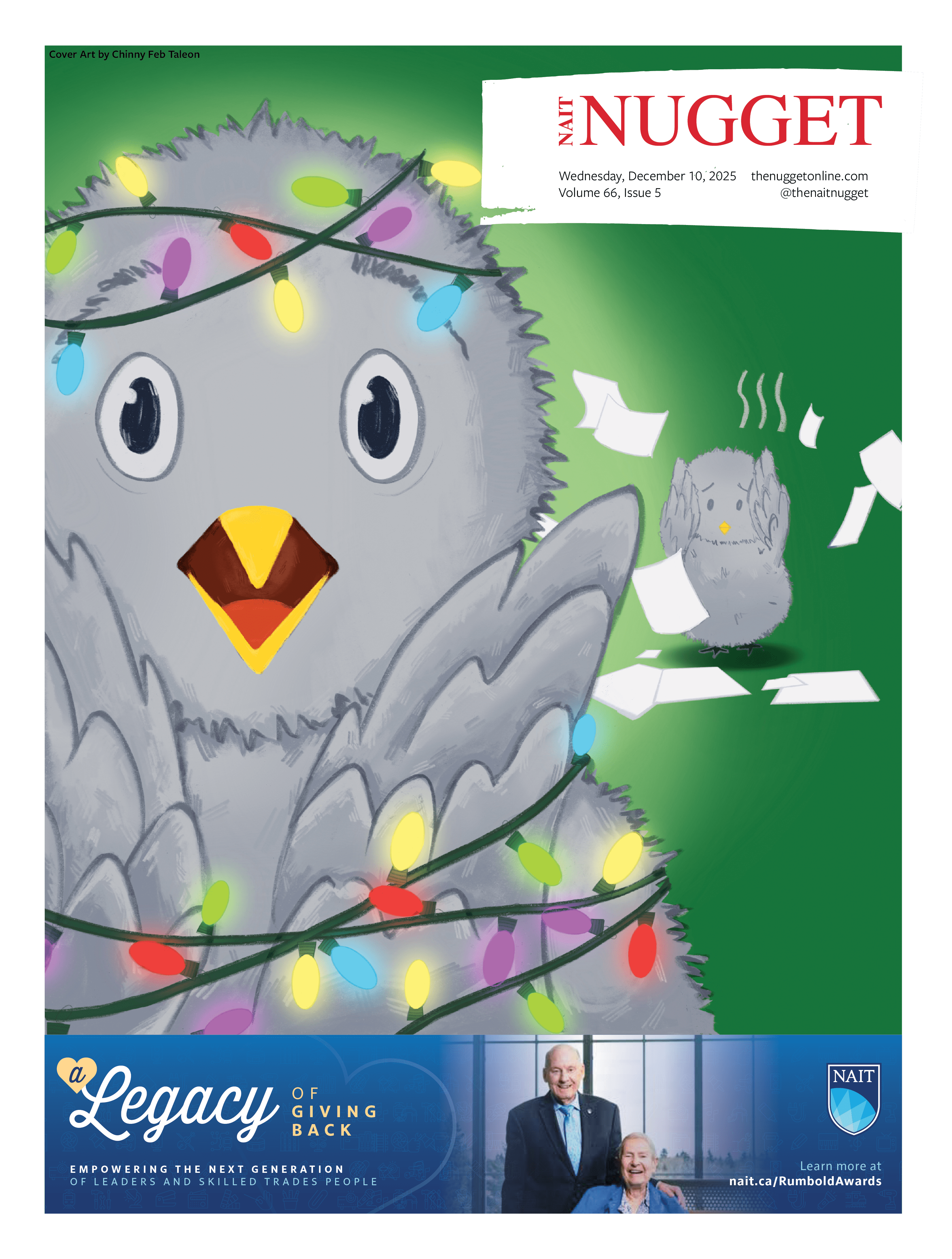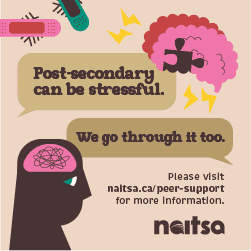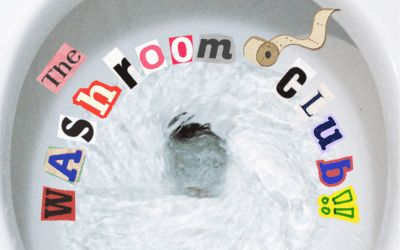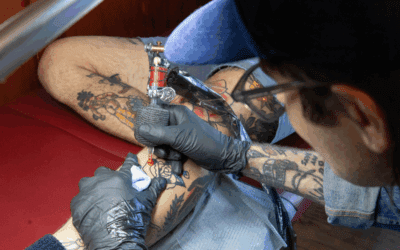After hosting two successful events last semester, NAITSA’s Sustainability Committee organized another ‘How to Make a Bee Hotel’ event. Spots for the returning event filled up fast, but according to NAIT Biological Sciences Instructor and resident bee enthusiast Jocelyn Crocker, there are other ways for NAIT students to help bee populations.
Crocker, who hosts the bee hotel events, said her bee advocacy started in 2014 after being closely involved in a pilot to change Edmonton’s bylaw to allow beekeeping honey bees within city limits. The bylaw was successfully changed in 2015, but Crocker continues to advocate for bees native to Alberta.
“Honey bees are actually an introduced species, so they’re kind of invasive in some ways, and they can [in some cases] outcompete food sources for native bees,” said Crocker. “From an ecological point of view, trying to support native species to thrive is really important. So, looking at what are native plants that we can plant and how can we support native biodiversity, and one really important way of doing that is thinking about native bees, which are not honeybees.”

Alberta has a large native bee population; 375 of 903 of Canada’s native bees species are found in Alberta. The Bee Hotel event helped students consider how to create spaces for native bees to thrive. Being cautious of spaces where bees populate, embracing native bee food sources and buying local are actions that help native bee populations–but it’s also about creating habitats specific to their needs.
“What they need a habitat for is laying their eggs,” said Crocker. “Even in our urban lands, and even when all you have is a balcony, you can tuck a little bee hotel up in your balcony and make some space for those native bees.” Using recycled empty jars provided by NAITSA and lily stems from Crocker’s yard, students learned how to provide this habitat for bee nurseries, or “bee hotels.”
Crocker explained that the native bees lay their eggs inside the lily stem, which can be substituted for a straw. “Then they put little bits of either soil and sometimes a little bit of wax, and then lay another egg. And so, if you think of a straw, it would be filled with all these little eggs.” Unless they’re laying eggs, the bees won’t come and go in the fall.
For those with access to a yard, avoiding raking fallen leaves is another way to help native bee populations before winter.
“The leaves that fall on the ground are often where those native species lay their eggs and the leaves and that top layer of the soil is where they are meant to go. When the snow melts, that’s where they hatch and come up,” said Crocker. In the spring, the new bees emerge from their habitats, which includes the student-built bee hotels.
“Honeybees are different from native bees, because native bees don’t live year-round, they are meant to die in the fall. And then there’s the eggs that hold those populations over and hatch in the spring, the new generation.” Once spring hits, finding food is vital for the new generation of bees, who rely mainly on dandelions for nectar.
“Dandelions, when they come up, they’re those first food sources for bees. So, they’re actually really important. If we didn’t have dandelions, we would have very slow growing populations of bees.”
Students with planters on their balconies can buy pollinator-friendly flower seeds over the winter in anticipation of this new bee generation. “My favorite thing to do in January is buy seeds because you know [spring] is coming,” said Crocker.
Come February and early March, students can order native bee cocoons to release from their balcony in April. Mason bees, a native bee species, only stay about 100 metres from where they hatch. “If you release a mason bee outside your apartment, it’ll be near your apartment. It’ll be your neighbor for however long it lives.”
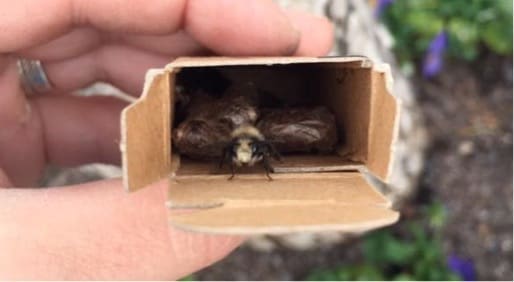
“You just let them go and they do their thing, and you do your thing, and you just know that you’re co-existing.”
Crocker recommended Salisbury Greenhouses and Butterfly Wings n’ Wishes–a business she said employs NAIT BioScience grads. “Another thing that lifts me up is ordering mason bees knowing that spring is coming. You don’t need a license for it, and you don’t maintain them, you just let them go and they do their thing, and you do your thing, and you just know that you’re co-existing.”
NAIT students can also help native bee populations by using their consumer power to support local farmers and producers. It’s about being conscious of the connection between bees and the food we eat, and not underestimating the power of the individual, said Crocker.
“Even as a student, you have a lot of economic power on what you choose to study, where you choose to work, what activities you choose to do, where you buy your clothing, where you buy your foods, who you interact with, and there is a lot of power in combining your force with other people,” said Crocker. “I think that if you find a passion, so whether it is about bees or anything else, you know, finding people who think the same way and working with them is really how you change the world.”


